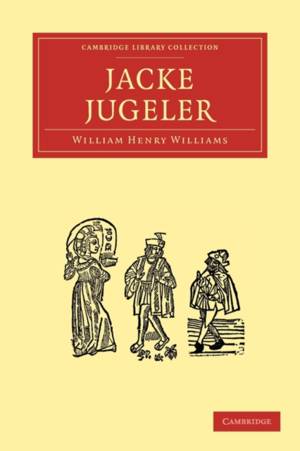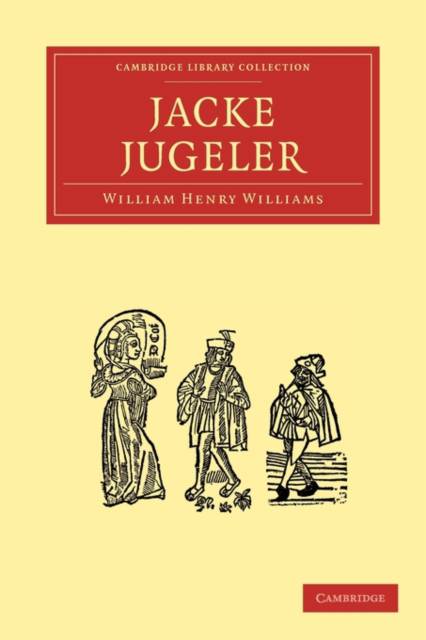
Door een staking bij bpost kan je online bestelling op dit moment iets langer onderweg zijn dan voorzien. Dringend iets nodig? Onze winkels ontvangen jou met open armen!
- Afhalen na 1 uur in een winkel met voorraad
- Gratis thuislevering in België vanaf € 30
- Ruim aanbod met 7 miljoen producten
Door een staking bij bpost kan je online bestelling op dit moment iets langer onderweg zijn dan voorzien. Dringend iets nodig? Onze winkels ontvangen jou met open armen!
- Afhalen na 1 uur in een winkel met voorraad
- Gratis thuislevering in België vanaf € 30
- Ruim aanbod met 7 miljoen producten
Zoeken
Omschrijving
This 1914 scholarly edition of the mid-sixteenth-century play Jacke Jugeler contains an informative introduction and detailed notes. Little-known today, the play represents a pre-Shakespearean example of classical 'borrowing' - a Roman play by Plautus is adapted to an English domestic situation - and it is one of the first instances of confused identity and 'doubles' in English comedy. The text of this edition is taken from the unique original, probably published around 1562, in the collection of the Duke of Devonshire. In his Introduction, W. H. Williams proposes the likely identity of the play's author, and provides an analysis of the play's language to support his claim. He examines the connections in method, characters and language between Jacke Jugeler and Ralph Roister Doister, a play written and performed around the same time.
Specificaties
Betrokkenen
- Auteur(s):
- Uitgeverij:
Inhoud
- Aantal bladzijden:
- 104
- Taal:
- Engels
- Reeks:
Eigenschappen
- Productcode (EAN):
- 9781108002608
- Verschijningsdatum:
- 20/07/2009
- Uitvoering:
- Paperback
- Formaat:
- Trade paperback (VS)
- Afmetingen:
- 152 mm x 229 mm
- Gewicht:
- 163 g

Alleen bij Standaard Boekhandel
+ 44 punten op je klantenkaart van Standaard Boekhandel
Beoordelingen
We publiceren alleen reviews die voldoen aan de voorwaarden voor reviews. Bekijk onze voorwaarden voor reviews.











